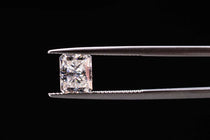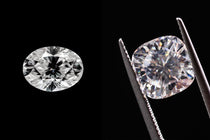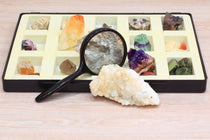Selling gold bars can be a lucrative way to convert your investment into cash, particularly in times of economic uncertainty when gold prices are high. Before engaging in a transaction, you should be aware of the process and the market conditions. The gold you possess, be it in the form of bars, coins, or other assets, is a valuable commodity, and knowing the right strategies to sell can significantly impact the return you get on your investment.
Understanding the value of your gold bars is crucial. They must be assayed to determine their purity and weight, which are key factors that influence their market value. A reputable dealer will verify these details and offer a price based on the current gold market rate. When selling gold bars, it’s also important to consider the timing since gold prices fluctuate due to various market forces.
It’s essential to choose a trustworthy buyer when you're ready to sell your gold bars, whether it’s a private collector, an online gold buying service, a pawnshop, or a jewelry store. Doing your due diligence on potential buyers can protect you from low offers and ensure a smooth and secure transaction. For further insights on acquiring and managing gold investments, explore resources like How to Invest in Gold which can offer a comprehensive guide on this subject.
Understanding Gold Bars
When you decide to invest in or sell gold bars, it's essential to know the types available, the purity standards they must meet, and the variety of weights they come in. Each of these attributes affects the bars' value and liquidity in the gold market.
Types of Gold Bars
Gold bars come in two primary types: cast and minted. Cast bars are created by pouring molten gold into molds, which results in a rougher finish and unique markings. Minted bars are cut from flat gold sheets and often feature intricate designs, with a more polished and precise appearance. The choice between cast and minted bars may influence your selling experience, as minted bars can sometimes fetch higher prices due to their aesthetic and collectible value.
Purity Standards
The purity of gold bars is measured in karats or fineness. Investment-grade gold typically has a purity of 99.5% or higher, usually designated as 24 karat or a fineness of 999.9. This high level of purity is a requirement for trade on most precious metal exchanges and for inclusion in IRAs. Ensuring your gold bars meet these purity standards is crucial for a smooth selling process.
Gold Bar Weight Options
Gold bars are sold in a range of weights, catering to different levels of investment. Common weights include:
- 1 gram
- 10 grams
- 1 ounce
- 100 grams
- 1 kilogram
- 400 ounces (standard for central banks)
The weight of your gold bar directly impacts its price and ease of sale. Smaller bars like 1-ounce options offer affordability and easier trade, while larger bars such as the 400-ounce ones are more often held by large investors and institutions due to their substantial value and lower premium over spot price.
Legality and Regulations

Before you sell your gold bars, it's essential to understand the legal landscape and what it might mean for you financially. Selling gold bars involves adhering to tax implications and fulfilling legal requirements that govern such transactions.
Tax Implications
- Capital Gains Tax: When you sell gold bars for a profit, the IRS considers this as a capital gain, which is taxable. The tax rate depends on how long you've held the asset; gold held over a year falls under long-term capital gains, often taxed at a lower rate compared to short-term holdings.
- Reporting Sales: You may be required to report the transaction if it exceeds a certain threshold. This involves submitting IRS Form 1099-B through the entity you sell your gold bars to or directly if you're selling as a business.
Legal Requirements for Selling Gold
- Verification of Purity and Weight: Your gold bars need to be assayed for purity and weight. This verification is often a legal requirement to prevent fraud. Ensure you have the certificate of authenticity that typically comes with the gold bar.
- Anti-Money Laundering Laws: As a seller, you need to be aware of the regulations designed to prevent money laundering. These laws require dealers to obtain personal identification information from sellers and to report certain transactions to the authorities.
Remember to consult with a financial advisor or legal expert to ensure you're complying with the relevant tax codes and legal guidelines. This will help you sell your gold bars confidently and legally.
Preparing for Sale

When you decide to sell your gold bars, it's crucial to ensure you receive the maximum value. This means getting a professional appraisal and having all the necessary paperwork in order.
Appraising Gold Bars
To ascertain the value of your gold bars, seek a professional appraisal from a reputable dealer or certification authority. Gold value is determined by weight and purity, often marked directly on the bar. It's important to note that the spot price of gold—its market value per ounce—will influence the appraisal.
Documentation and Certification
Ensure you have the proper documentation, which includes certificates of authenticity, receipts, and any assay cards that came with your gold bars. These documents verify the gold's purity and weight, increasing buyer confidence and potentially the price they're willing to pay. Proper documentation demonstrates provenance, proving that your gold bars are legitimate.
Choosing a Selling Avenue
| Selling Avenue | Description | Considerations |
|---|---|---|
| Local Jeweler | Selling to a local jeweler or gold buyer in your area. | Convenience, quick transactions, potential for negotiation. Check reputation and reviews of the buyer. |
| Bullion Dealer | Dealing with specialized bullion dealers or precious metal brokers. | Expertise in gold market, fair market prices, potential for bulk transactions. Check dealer reputation and certifications. |
| Online Platforms | Utilizing online platforms or marketplaces for selling gold bars. | Wide audience, potential for competitive offers, secure transactions. Be cautious and choose reputable platforms. |
| Bank or Financial Institution | Selling to a bank or financial institution that deals with precious metals. | Security, established processes, potential for immediate payment. Check if your bank offers such services. |
| Auction Houses | Participating in auctions for selling gold bars to the highest bidder. | Potential for competitive prices, broad market exposure. Be aware of associated fees and commissions. |
| Refinery | Selling directly to a gold refinery for melting and processing. | Potentially higher prices for raw gold, direct processing. Research refinery reputation and policies. |
| Peer-to-Peer | Arranging private transactions with individuals or investors. | Potential for negotiation, flexibility. Exercise caution to ensure secure transactions. |
| Gold ETFs | Exchanging physical gold for shares in a gold exchange-traded fund (ETF). | Liquidity, no need to physically sell gold bars. Understand ETF terms and fees. |
When you decide to sell your gold bars, selecting the right avenue is paramount for a secure transaction and fair price. Consider the advantages and logistics of each option available to you.
Local Gold Dealers
If you prefer a face-to-face transaction, local gold dealers offer the benefit of immediate payment. Research well-established dealers in your area with a strong reputation. Ensure they are certified by a precious metals industry group, which guarantees that they adhere to ethical standards. Bring your gold bars along with any certifications of authenticity to get an appraisal before making a deal.
Online Gold Marketplaces
For those looking for convenience, online gold marketplaces provide a platform to sell from the comfort of your home. When selecting an online marketplace, check for transaction fees, shipping insurance, and the reliability of their price-matching guarantees. Reputable online dealers often offer resources to help you ship your gold safely.
Auctions and Private Sales
Auctions, both online and in-person, may yield higher sale prices due to collector interest. Private sales can also offer competitive rates but require you to be savvy about verifying buyer credibility. For auctions, understand the fee structure and reach a broad audience of potential buyers. In private sales, draft a clear, legal agreement outlining payment and delivery terms to protect your interests.
Negotiating the Sale

When you're ready to sell gold bars, mastering the art of negotiation is critical. It's about knowing the worth of your gold and understanding the buyer's perspective to secure a beneficial deal.
Setting a Price
Firstly, determine the fair market value of your gold bars. This involves checking the current gold spot price, which fluctuates daily, and considering the purity and weight of your bars. Gold purity is measured in karats, with 24k being pure gold. An accurate assessment sets a transparent basis for your selling price. It's recommended to present a justified price to prospective buyers with supporting evidence, which could assist in kicking off the negotiations on a solid footing.
Understanding Buyer's Motives
Recognizing why the buyer is interested in purchasing gold is fundamental. Is it for investment purposes, where market value and potential ROI are paramount? Or is the buyer a collector, driven by the rarity and design of the gold bars? Detecting their motives will guide your negotiation strategy. An investment-focused buyer, for instance, might prioritize a lower price for higher volume. On the other hand, this study suggests that detailed knowledge of a product could influence negotiations, indicating that offering in-depth information about your gold bars could be advantageous.
Transaction and Security

When you are selling gold bars, ensuring the security of the transaction is paramount. You'll need to consider safe payment methods and be aware of fraud prevention measures to protect your investment.
Safe Payment Methods
Opt for verified and secure payment methods. Transactions should be done using:
- Bank transfers: Instant and secure, bank transfers typically offer traceability for both parties.
- Certified checks: Ensure they are from reputable financial institutions and verify authenticity before releasing gold.
Fraud Prevention Measures
- Verify the buyer's credentials: Always conduct due diligence by asking for identification and confirming the buyer's credibility.
- Work with reputable dealers: Engage with well-established and respected dealers who have a proven record of safe transactions. You can find such a dealer through services like Bullion Star International.
Your practices during the sale of your gold bars should focus on maintaining a secure environment for both your assets and your financial returns.
After the Sale
After selling gold bars, it's critical to address the legal and financial aspects of the transaction. Ensuring compliance with tax laws and making informed decisions about reinvesting the funds are key steps in effectively managing the proceeds from your sale.
Reporting the Transaction
When you sell gold bars, it's important to report the transaction to the appropriate tax authorities. This may involve declaring any capital gains or losses. Depending on the country, there may be specific forms or protocols to follow. For example, in the United States, you'd need to report the sale on Schedule D of your tax return if it qualifies as a capital asset.
Investing the Proceeds
After reporting the sale, you'll likely consider options to reinvest the proceeds. This could include:
- Diversifying investments: To reduce risk, you might spread the funds across different assets such as stocks, bonds, or real estate.
- Further precious metals: Some opt to reinvest in other precious metals like silver or platinum for portfolio diversity.
- Retirement accounts: You could boost your retirement savings by contributing to an IRA or a 401(k), within the annual contribution limits.
- Savings accounts: Placing the funds in a high-yield savings account or Certificate of Deposit (CD) can offer a safeguarded return.
Also Read
Frequently Asked Questions
When you're looking to sell gold bars, it's important to be informed about the process, the players involved, and the factors affecting the transaction. Our FAQ section is designed to provide you with clear and concise answers to the most common questions.
What are the steps involved in selling gold bars for cash?
First, have your gold bars assessed by a professional to verify their purity and weight. Next, research gold prices and potential buyers like reputable gold dealers, pawn shops, or online marketplaces. Once you choose a buyer, negotiate the price, complete the sale, and ensure you receive the payment securely.
Where is the best place to sell gold coins and bars for a fair price?
Reputable gold dealers or coin shops often provide the fairest prices for gold coins and bars. It's advisable to compare offers from multiple buyers and check their credibility through customer reviews and ratings provided by the Better Business Bureau.
Can I sell my gold bars directly to a bank, and if so, which banks accept them?
While not all banks deal with gold bars, some do accept them as deposits or for sale. You'll need to check with your bank or other financial institutions to see if they offer these services. Be aware that banks that trade in gold might only accept gold bars with certain accredited markings.
What factors determine the amount of money I'll receive when selling a gold bar?
The value you receive for a gold bar depends on its weight, purity, current market price of gold, and the buyer's margins. Additional factors include the bar's mint and any historical value if it's considered collectible.
How do I ensure a safe and legitimate transaction when selling gold for cash?
To ensure a secure transaction, choose a reputable buyer, preferably with a brick-and-mortar presence. Get all agreements in writing, use secure methods of payment, and be cautious of buyers who are unwilling to provide clear information about the transaction process or their business practices.
What are the best practices for converting gold bars to cash in Red Dead Redemption 2?
In the game Red Dead Redemption 2, you can sell your gold bars to a fence, a special type of non-player character. Ensure you have completed the required mission "The Spines of America" which unlocks the ability to sell valuables. It's recommended to sell your bars one at a time to take advantage of specific in-game opportunities.
Checkout some of our top collections:








